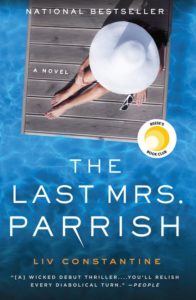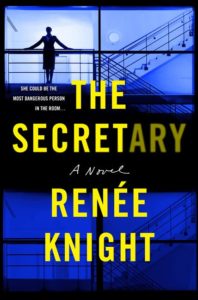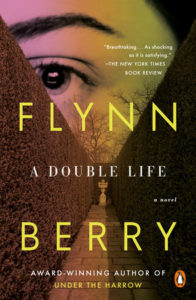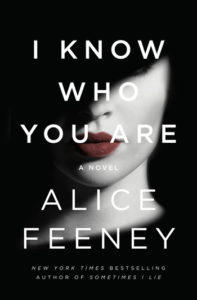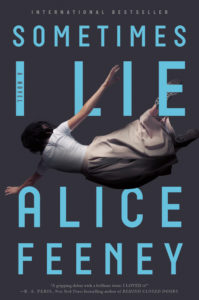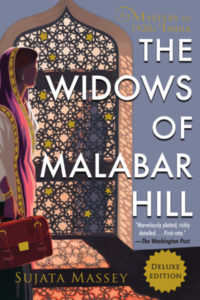Is there such a thing as a two-hit wonder? Second books often don’t live up to the promise of debuts, but some or as good or even better. Yet second books get no respect: everyone loves a splashy debut, the introduction of a new voice, a promising career ahead. It’s second books, however, that we should be watching closely. The world is not waiting for your first book, but if that second book is good it’s a good indicator of a writer to watch. All of these writers have two books worth reading under their proverbial belts. Give one (or more) a try now.
Liv Constantine
Liv Constantine is actually a writing team of two sisters, Lynn and Valerie Constantine. Their milieu is the world of the wealthy American suburbanite: women who work out like it’s their job; women who run charity events; women who plan and execute parties in their oversized homes that make the neighbors envious; and spend exorbitant sums of money on grooming themselves from highlights to pedicures. Their first book, The Last Mrs. Parrish, focused on a woman determined to break into this elite class while keeping her origins secret. In the second, The Last Time I Saw You, a high society matron is murdered, and her daughter reunites with an old friend to investigate the crime.
Renée Knight
Disclaimer, Knight’s debut, is a tale of vengeance and deceit in two very different but interconnected families. It really is a novel that unspools, or a slow burn, jumping from different characters’ lives and delving into their secret histories. The opening salvo is irresistible: a woman receives a book which documents a terrible period in her life but there is no author and the book doesn’t seem to exist except for her copy. The Secretary, Knight’s excellent follow up, is about a longtime personal assistant to a wealthy and famous celebrity chef (think Nigella Lawson as the heiress of a major food company) implicated in her boss’s crimes.
Flynn Berry
Berry’s two stand-alones are both beautifully written and intense novels. The Edgar-award winning Under the Harrow chronicles a woman’s quest to solve her sister’s murder, as she’s convinced the truth is not in the recent events the police are investigated but is rooted back in her family’s past. A Double Life is also a family story: loosely based on the 1974 Lord Lucan case, in which a nobleman disappears after a body is discovered in his family’s home. Berry tells the Lucan-esque story from the perspective of the lord’s daughter, now a doctor living in London under an assumed name to avoid being associated with her notorious father.
Dervla McTiernan
McTiernan is off to a terrific start with her Dublin based Detective Cormac Reilly series. She’s earned multiple comparisons to another Irish crime novelist you might have heard about: Tana French. Like French, McTiernan creates the peculiar world of Ireland and of Dublin in particular, a city which boomed during the Celtic Tiger years but is still essentially a small town. Proof of this is that in The Ruin Reilly is called out to what looks like a suicide, a man jumping off a bridge. The man’s girlfriend is sure it was not a suicide, so Reilly begins to investigate and is shocked when this event dovetails with a case he had 20 years ago. For more Reilly there’s the recently published The Scholar in which Reilly’s girlfriend, Dr. Emma Sweeney, finds a body across the street from her office at Galway University.
Alice Feeney
Feeney’s psychological suspense explores themes of memory and identity: what makes us what we are. In her debut, Sometimes I Lie, Amber Reynolds drifts in and out of a coma trying to force her addled brain to figure out what happened, moving back and forth between the present and the week before she was injured. We know from the start, however, that Reynolds is an unreliable narrator. She tells the reader up front: “I’m in a coma. My husband doesn’t love me anymore. Sometimes I lie.” That’s the way to hook a reader. Errant husbands also figure into Feeney’s second book, I Know Who You Are, which centers around an actress who is sure someone is scheming against her. She’s right, but it’s not who she thinks.
Susie Steiner
Thank you, Susie Steiner, for giving us the gift of Manon Bradshaw. In Missing, Presumed, 39-year-old Bradshaw of the Cambridgeshire police, is great at her job but lousy at having a personal life. Estranged from her family, she longs to build a home with someone: given that this is the bailiwick of every women’s magazine ever, Bradshaw’s loneliness is refreshing and realistic. As she investigates the disappearance of a Cambridge student with powerful parents, Bradshaw muses about the connections between people, familial and otherwise. Without spoiling too much, Bradshaw’s next outing, Persons Unknown, deals with the stabbing and eventual death of a young man walking through a park in broad daylight. What’s troubling about the case is as she gathers evidence someone close to her looks like the prime suspect.
Sujata Massey
I’m cheating a bit here as Massey has written more than two books, but she’s just published the second in a new and exciting series. The Widows of Malabar Hill, introduces us to Perveen Misty, one of the first woman lawyers in 1920s India. Misty works in her father’s practice mainly doing paperwork (though women are permitted to go to law school, they are not supposed to go to court). When one of Mistry Law’s most important client dies, Mistry is handling the Muslim man’s estate. Since the widows are in purdah and cannot be around men, she’s assigned the unenviable task of delivering bad news to the wives: according to his will, his estate is earmarked for charity and his wives get nothing. Misty resolves to investigate, even as her questions are starting to annoy powerful people. In The Satapur Moonstone, Satapur, a beautiful small city in the mountains. The royal family of Satapur suffers several deaths, leaving the city to be run by an agent from the British Raj. But there is a young prince who will take over when he’s come of age, and in the meantime the dowager widow and her daughter-in-law, now in purdah, enlist Misty to make recommendations about his education.


